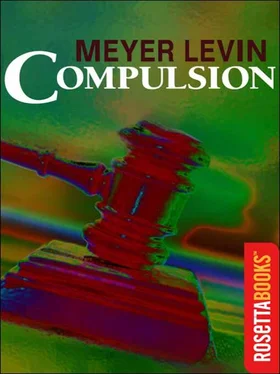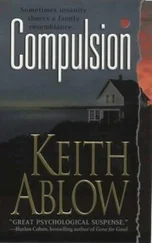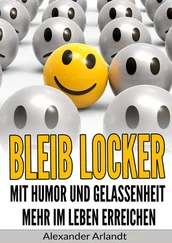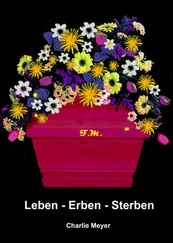“Can you fix the date?” Ferdinand Feldscher asked.
“Well, I know it was in between the crime and the apprehension.”
“At the time of the discussion, did you think it was strange?”
“It was just one of his nutty ideas.”
“Nutty, did you say? Meaning irresponsible?”
“Well, exaggerated. Things you couldn’t take seriously.”
“Can you recall some other such – nutty ideas?”
“He said he was a nihilist-”
“A nihilist, what is that?”
“A kind of anarchist who wants to destroy things.”
“Even worse than an anarchist, then? Destructive?”
“Yes. He felt no restraint as far as authority was concerned, and he said he believed in destruction merely for the sake of destruction. I remember one argument when he said there was no value to life in itself.”
“Was this a part of his Nietzschean philosophy?”
Judd was whispering excitedly now; Wilk was trying to calm him.
“No, I wouldn’t say it was exactly in line with Nietzsche.”
“Would you accept the Nietzschean philosophy?”
“No,” Milt said, “because the founder of that philosophy was insane a good part of his life. Nietzsche himself died in an insane asylum.”
“But Judd accepted it?”
“Hook, line, and sinker,” Milt said.
Horn’s cross-examination was simple. Hadn’t all the students been exposed to Nietzsche?
“The Nietzschean theory is just one small phase of the entire field of philosophy,” Milt said ponderously.
“All of you didn’t take it as a licence to go out and murder?” The question was withdrawn after defence objection.
Milt left the stand with a virtuous air.
A grave problem confronted the defence. It concerned the stolen Storrs-Allwin report. If neither Storrs nor Allwin were called, could the damaging items from the report be kept out of the courtroom? Crimes A, B, C, D ? Wouldn’t Horn himself produce the report?
In the morning the defence called Dr. Allwin. Even when the defence produced the snapshot of four-year-old Artie in his cowboy suit, aiming his pistol at his teddy bear, Horn let it go into the record, only chortling aloud as Dr. Allwin explained the significance of Artie’s “intent expression”, an indication that, even at that early age, fantasy and reality were confused in the boy. Horn waited for his chance to cross-examine.
Then, holding the Storrs-Allwin report in his hand like a Bible, the prosecutor attacked.
“Couldn’t the boys have cheated on some of these tests, since they are so smart, such good liars, as your report observes?”
“No,” said Dr. Allwin.
“And why not?”
“Because I am smarter than they are,” he said softly.
Because of the very abundance of the material he had received from them, consistent lying would have been most difficult, he explained. Judd, he felt, had been on the whole fairly truthful, decidedly more so than Artie. But Artie had lost the normal person’s ability to distinguish between truth and fantasy.
“Well, what constitutes normality?”
“A proper balance between the intellect and emotion.”
“And these boys are abnormal?”
“Yes, but in different ways.”
Horn snorted. In what he understood by abnormality, they were the same, he said. In fact, to the State they were plain perverts. Didn’t their compact provide that Artie should consent to certain acts, in exchange for Judd’s help in his criminal adventures? What were those acts?
“They were sexual acts,” Dr. Allwin said.
“How often?” Horn demanded.
Several women pressed their way down the aisles, to get closer. Angrily, the judge ordered, “I want every woman to leave this room!”
Finally, the courtroom was partly cleared. The judge had the testimony continued. In a voice refined and regretful, Dr. Allwin described the acts, calling Judd the aggressor. But this was the only such relationship, apparently, that Judd had ever developed. On Artie’s part, the incidents had been passive. They had occurred a few times a month.
Judd’s eyes were cast down. His father’s head was bent low, the eyes closed.
There lay the sickness, finally frankly exposed before us. Was it so dreadful a thing? In all the history of human behaviour, of the sick and ugly and distorted and careless and sportive and mistaken things that humans did, was this so much more?
But there was something more connected with the sexual act, Horn insisted, when the open trial resumed. Wasn’t it a part of the compact, that each act was linked to a crime? What, then, were the other crimes?
No, no! Ferdinand Feldscher protested.
Forcefully, Horn read from the Storrs-Allwin report the section about crimes withheld. Of Artie, it said, “Without any indication, facial or otherwise, he would lie or repress certain instances.” He turned on the alienist. “So there were gaps in Artie’s story of his crimes?”
“Yes. I said that.”
“And he might have been advised not to tell you these things?”
“He might have been.”
Horn read on: “‘His older brother does not know of these untold stories, but the patient says he will not tell him unless the family advises him to.’ You wrote this?”
“Yes, that is just what I wrote.”
“So just how important these matters are that he has been advised not to tell you, you don’t know?”
“I don’t know,” Allwin replied, unruffled.
With heavy emphasis, Horn read, “‘On the other hand there is a certain legal advantage in minimizing the broadcasting of these episodes.’ In other words, it is to the advantage of the defendants to have withheld certain information from you so that the conclusions you have arrived at won’t be disturbed, is that true?”
“I was interested in the one crime, the Kessler crime,” the doctor said.
Horn read on, arriving at the crucial mystery. “‘Though Artie denied the so-called “gland robbery” and the “ragged stranger” murder, he referred to four other episodes where the letters A, B, C, D were suggested. It was found forensically inadvisable to question him about these.’ By ‘forensically’ you mean legally, don’t you?”
Allwin hedged. “Just a pressure of time. We were concentrating on this case and to get our report in before the doctors came from the East.”
Horn shook his head. “What does ‘forensic’ mean?”
“Form the forum.”
“It means legal?”
“Yes, legal, or pulpit.”
“So this might have said, ‘It was found legally inadvisable to question him about these’?”
“Yes.”
“Get this, ‘It was found forensically -’”
“Yes, that was the reason,” the doctor persisted. “That is the forensic reason.”
There was laughter.
Horn kept after him. “Yes, but legally it was found inadvisable – now what do you mean by that? That it would not help his case if you went into these other episodes?”
“No – to get the report through by the twenty-first if we could possibly do it.”
“Why didn’t you say that? That you didn’t have time?”
“That is the way I felt about it,” the doctor snapped.
“And you thought the court and the rest of us would understand by that sentence that you did not have time to go into these other matters?”
The sarcasm was the final jolt to the doctor. “Absolutely not,” he said, testily, “and for this reason. This report was not prepared for you, it was prepared for other physicians who were coming on from the East. I had no idea this report would be submitted to the public or to you.”
Horn breathed a loud “Aha! So we weren’t supposed to know even this much.” Then he said, “But there is someone who knows. In your report, Artie Straus is speaking here of his associate, Judd Steiner. He says, ‘I have always been afraid of him, he knew too much about me’. And you, Dr. Allwin, wrote here, ‘He was somewhat afraid his associate might betray him. He had thought of pointing a revolver at his associate and shooting him.’ You say Artie Straus said, ‘The idea of murdering a fellow – especially alone – I don’t think I could have done it. But if I could have snapped my fingers and made him pass away of a heart attack, I would have done it.’”
Читать дальше












